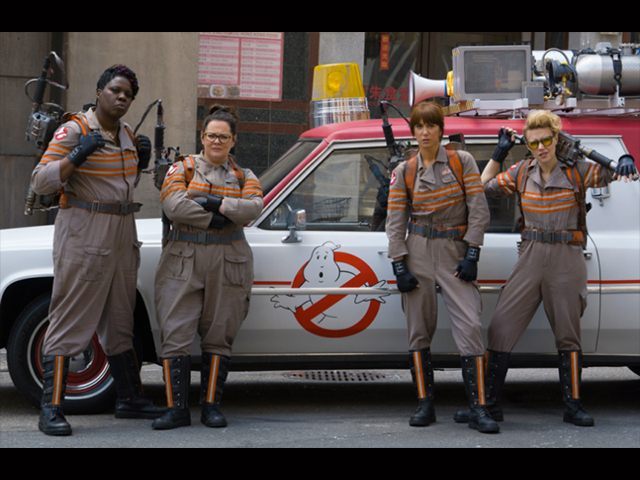Top Hollywood executives, writers, directors, and actresses convened for a secret meeting in October to propose a detailed plan to combat gender inequality in the entertainment industry.
According to TheWrap, nearly four dozen of Hollywood’s top brass gathered on October 14 and 15 at the Pacific Design Center in L.A. for a meeting to “drill into the systemic causes of gender bias in the industry and craft solutions.” The meeting was sponsored by Women in Film and the Sundance Institute.
Attendees included HBO Films president Len Amato, Twilight director Catherine Hardwicke, actress Maria Bello, Lionsgate co-president Erik Feig, Orange is the New Black showrunner Jenji Kohan, Gone Girl producer Bruna Papandrea, and Mission Impossible producer Paula Wagner, among many others.
The group proposed a four-point plan to combat gender inequality in the film and television business, including the appointment of an “unconscious bias” educator to work with industry executives and creatives, the creation of a “gender parity stamp” to label work that includes equal female presence both in front of and behind the camera, the creation of a female director mentorship program, and the appointment of gender equality ambassadors at the major Hollywood studios.
“We are at an economic, social and cultural tipping point and sustainable change is within reach. The time to act is now,” Women in Film president Cathy Schulman said in a statement. “Hollywood is surprisingly late in coming to this party and this is the time for conversion.”
The meeting was held just a few days after the federal Equal Employment Opportunity Commission (EEOC) opened an official investigation into the lack of female directors in Hollywood. In May, the American Civil Liberties Union (ACLU) petitioned the EEOC to investigate the “systemic failure” of Hollywood film studios to ensure gender parity behind the camera. The organization’s data show that of the top 1,300 highest-grossing films in the 12-year period between 2002-2014, just 4.1% were directed by women.
“The time is right to gather industry leadership and start to address these obstacles,” Sundance Institute executive director Keri Putnam said in a statement. “The commitment from participants makes me believe that the industry is ready to explore real, tangible solutions that create more opportunities for women.”
Other attendees at the October meeting included CAA agent Chris Andrews, Straight Outta Compton screenwriter Andrea Berloff, Fifty Shades of Grey producer Michael De Luca, Black List founder Franklin Leonard, Walking Dead executive producer Glen Mazzara, and Warner Bros. Marketing and Distribution president Sue Kroll.
The full four-point plan proposed by the attendees of the meeting is below, courtesy of TheWrap.
Advocate ‘Unconscious Bias’ training across the industry. Leaders in other businesses have determined that unconscious bias creates blind spots and leads to missed market opportunities, and also hinders access to valuable consumer segments limiting profits. Creating more content for women and people of color is not only about equality; it also makes good business sense. An expert Unconscious Bias educator will be selected to work with executives and creatives across the industry.
Develop and launch a Gender Parity Stamp to recognize films and television shows — as well as production companies, networks and studios — that show measurable progress to achieving gender equity. Mirrored on the successful work by LGBT advocates and the PGA’s producer mark, this recognition for positive progress will be a visible identifier for companies that have prioritized equal gender hiring practice and have financed or supported business opportunities for women in front of and behind the camera.
Sponsor/Protégé Program. This high-level pilot program will identify talented early-to-mid career female film and TV directors for a year-long training and fellowship program, and pair them with advocates across the industry who will actively help them move to the next level. While many individual companies have training programs, this unique program will enable the protégé to work across different networks, studios and agencies. With the support and participation of executives across the industry, this program will highlight women selected by a panel of leaders and assure they have the tools, relationships, and exposure to launch and sustain their careers.
Ambassadors from the industry leaders at the meeting will spread the word about the solutions to studios, networks and agencies. Crucially, the participants have committed to staying involved in the project and will enlist an ever-growing group of advocates to work inside their organizations on articulating the business case for making changes in culture and practices to hire more women and people of color.

COMMENTS
Please let us know if you're having issues with commenting.